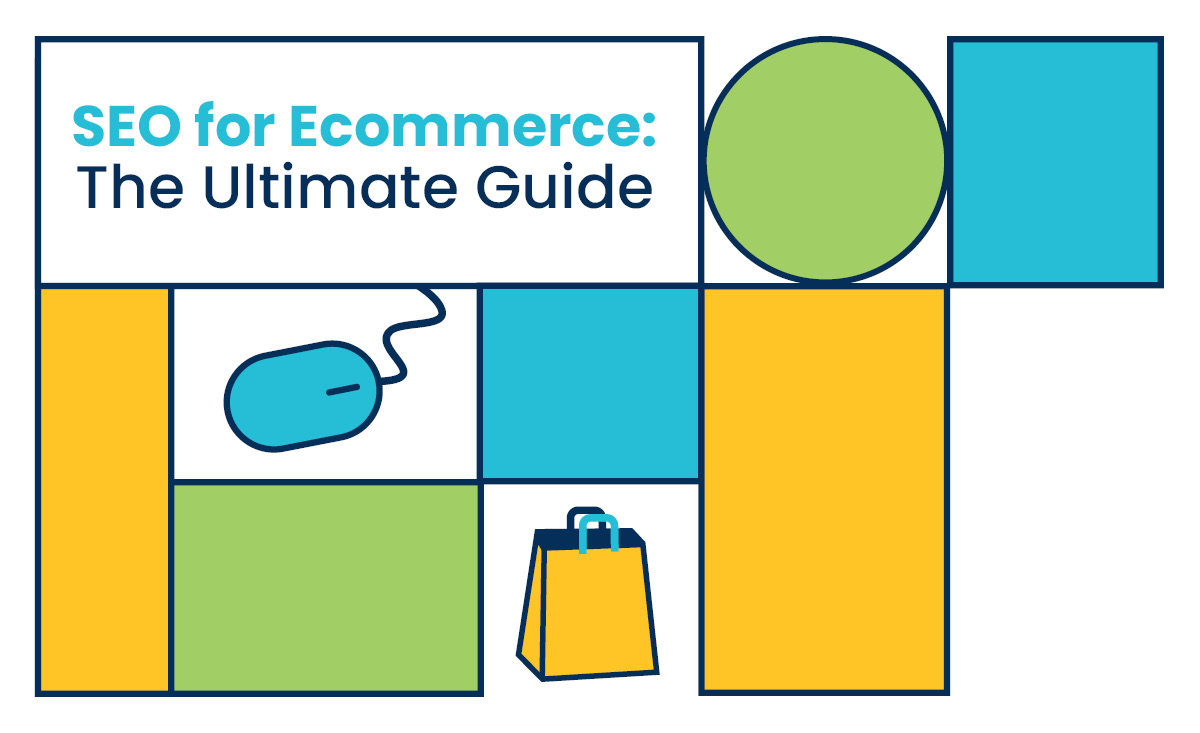
As a business owner, you've probably heard the term 'SEO' flying around...a lot. SEO is just one part of the puzzle that is Search Engine Marketing (SEM), but it is integral to your business's online success - especially if it's an ecommerce business.
In this blog, we will be giving you 10 SEO ecommerce tips to help you get ahead with SEO for ecommerce. Let's dive in...
1. Submit a sitemap.
Submitting a sitemap to Google Search Console helps Google's bots to crawl and index your website's pages with ease, instead of having to figure it out for themselves - which would take much longer!
This is extremely beneficial for your technical SEO. Keeping your sitemap update and resubmitting it regularly is a good way to improve crawlability and reduce indexing issues on your website.
2. Use internal links wisely.
Internal links impact your website's crawlability. This means that search engine crawlers will be able to read and follow links within your site's content to determine the hierarchy of your website and understand its structure.
When you include meaningful internal links (i.e. links that point to another page on the same site), you are showing the crawlers that your pages are connected and interrelated.
3. Choose the right anchor text for each link.
When adding internal links to your website, make sure you choose your anchor text carefully. This is because anchor text - the word or phrase that the user actually clicks on - provides context and benefits both website users and search engines.
Search engines use link text to index and rank pages, while users use anchor text to gain insight on what they'll be clicking on next. You can optimise your anchor text by using the main target keyword for the destination page, or turning it into a call to action (CTA).
4. Make sure your pages load quickly.
Search engines tend to favour websites that are quick to load and easy to access. Speed is one of the important page experience signals that Google uses to determine the authority of your website and thus its visibility in the search engine.
Check your website's Core Web Vitals regularly and make fixes that will improve your website's speed, interactivity and stability.
5. Carry out keyword research to identify relevant, popular search terms.
Keyword research allows you to optimise the language you use on your website in order to match the search queries your target customer is most likely to use. This helps to make your content more purposeful and useful - two qualities that search engines tend to smile upon.
Improve your keyword research by including keyword variations and related keywords within similar sub-topics of your niche. This will show that your website provides comprehensive, detailed and useful information.
Read More: Finding Keywords for SEO
6. Use the right language when writing product descriptions and copy.
Use your keyword research findings to optimise your product descriptions and other copy. A great tool for this is Google's Keyword Planner - this will help you determine which keywords to target by analysing their average monthly search volumes.
The areas you can optimise are:
- Page titles
- Product names
- URL slugs
- Meta descriptions
- Meta keywords
- Headings (h1, h2, etc.)
- Image alt text
7. Use schema tags to make your result stand out from the crowd.
Schema tags provide search engines with extra information and detail regarding the data within a page. You can use Google's Structured Data Markup Helper to help search engines read and further understand the content of your page.
With schema tags, there's a chance that your business could appear as a rich snippet in the SERP. A rich snippet looks like this:

Overall, rich snippets can help increase your organic click-through rate by adding visual interest and more information for searchers.
8. Provide unique, insightful content that will help your audience.
Content is still king! Be sure to provide unique, insightful and meaningful content that will position your website as a credible and trustworthy source.
Google's page quality criteria documentation prioritises three aspects of high quality content: expertise, authority and trustworthiness (EAT).
9. Use various forms of media.
To contribute to your ecommerce website's richness, implement alternative forms of media where possible. This can include text, graphics, video and audio.
These forms of content are more engaging and thus contribute to better SEO, but be careful to not overburden your page as this can affect loading speed.
Remember: multi-media is useful, but only if it adds value.
10. Build links.
Backlinks can be defined as links from other websites to your own, and Google sees them as recommendations. This is because it represents a third party who considers your content valuable.
The more quality backlinks a page has, the higher its authority. You can build an effective backlink strategy by guest blogging for high-authority websites, but remember to only build backlinks that will benefit and contribute your page's online presence.
Start your SEO for ecommerce with Designer Websites Ltd...
We hope these SEO ecommerce tips come in useful! Feel free to share this article for others looking for tips for SEO.
Thousands of people are searching for a business like yours - and we can make sure that they find you. Here are just the few of the services we use to get your business to page 1:
- Keyword Analysis
- Content Creation
- Social Media
- Link Outreach
- Local SEO
- Link Audits & Site Recovery
If you are interested in any of the services listed above, get in touch to discuss your business SEO strategy today.
